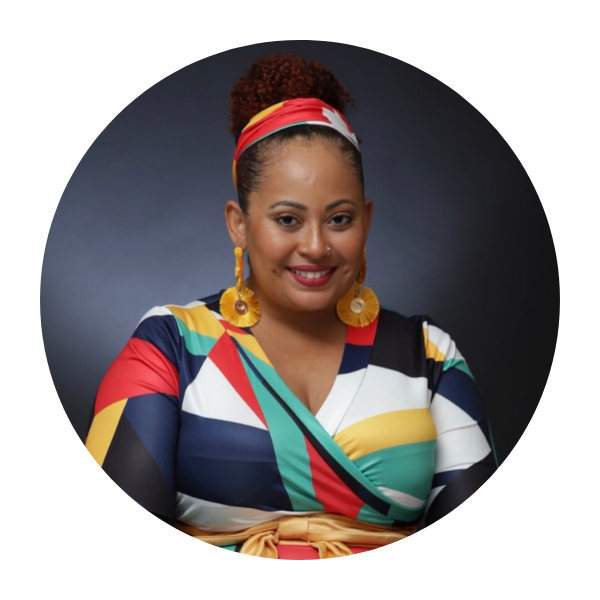“Gentle parenting” is the buzz word in parenting right now. Yet it is often associated with white parents in contrast to the notion of tough love, often associated with Black parenting.
Social media influencer LadySpeech Sankofa reminds us that gentle parenting is rooted in indigenous cultures. “The concept of gentle parenting comes from indigenous cultures,” she said in a post with more than 42,000 likes, “The concept of violent-based parenting comes from religiously fueled colonialism.”

Not only do I agree with LadySpeech Sankofa, I’ll take it a step further and say “tough love” associated with Black parenting is not Black at all — it’s what was brought, taught and done to Africans by white colonizers during slavery.
I looked deeper at the scholars who argue that missionaries and colonizers to Africa brought the idea of corporal punishment with them, imposing it on an ancient family style that was far more nurturing and “gentle” than what we see today.
“Historians … found no evidence that ritualistic forms of physical discipline of children existed in precolonial West African societies prior to the Atlantic slave trade,” wrote Stacey Patton, Ph.D., author of “Spare the Child.” In the U.S., African Americans adopted and amplified the practice of beating children from white slave masters. Patton asserts that “[o]nce in America, slaves as parents were under tremendous pressure to shape their children into docile field workers and to teach them proper deference and demeanor in front of whites.”
Behaviors such as tough love, whippings and violence in our parenting don’t trace back to our roots in Africa. So, why would enslaved Africans adopt such harsh and negative practices?
Joy Degruy, Ph.D., describes the experience of African Americans as post-traumatic slave syndrome wherein enslaved African parents were forced to use harsh parenting styles to keep their children safe from white oppressors. But without reflection, many miss this connection. She challenges that “we rarely look to our history to understand how African Americans adapted their behavior over centuries in order to survive the stifling effects of chattel slavery,” noting those effects are still evident today.
I say it’s time to release the fear and violence forced on us by white supremacy and shift back to parenting practices rooted in our own indigenous culture. When I visited Ghana during the “Year of Return” in 2019, I held a meeting with Ghanian parents and we discussed parenting across the diaspora. I learned about the sacredness of children, born inherently good, which is the opposite of what I learned being raised under a Christian doctrine that believes that children are born inherently evil.
Unfortunately, we as a people shifted away from our indigenous practices of parenting, to this tough love parenting that is rooted in the violence and colonialism we’ve had to survive.
So what is Black gentle parenting? It’s a return to our roots, reclaiming of Black ancestral parenting. It’s centering our relationship with our children on trust, connection and love.
Similar to how children are honored, seen as sacred beings, closer to the ancestral realm, maybe reincarnates of our ancestors, we don’t punish with abuse; we correct and guide in love. It’s moving beyond nuclear families and returning to our practices of collective childrearing, in alignment with the African proverb “It takes a village to raise a child.”
Rather than villages rooted in “tough love,” we reclaim ancestral communal practices such as those in East African tradition where, when a child makes a mistake, they are called to the center of the village wherein everyone affirms, loves and reminds them of their value and worth.
So how do Black parents reclaim our African parenting roots within the context of raising Black children in the U.S. where white supremacy is alive and well, where Black children are the youngest victims of racialized violence from Emmett Till to Tamir Rice?
Audre Lorde asserts that we must teach Black children to “love and resist simultaneously.”
As Black parents and caregivers, we must love our children, without thinking it will spoil them.
We must resist the narrative that violence is love … or that abuse is love; that we must beat or hit our children to provide them with correction.
We resist the idea that our children are inherently bad, evil and malicious.
We reject white supremacy.
We reject colonization — it will no longer live in our houses, nor take up root in our parenting. Instead, we return to our roots.
We need more Black parents to resist these notions that tough love and authoritarian parenting are intrinsically Black. We must reject the idea that whippings, spanking, etc. are Black traditions.
We must also reject the concept that “gentle” parenting is white.
We must love ourselves and our children enough to break the cycle, interrupt intergenerational violence and disrupt the ongoing impacts of post-traumatic slave syndrome.
We can do this. Join us at Parenting for Liberation for more opportunities to explore liberated parenting practices.
Trina Greene Brown is a proud Black feminist mama activist, who founded Parenting for Liberation in 2015. Her book “Parenting for Liberation: A Guide for Raising Black Children” published on Juneteenth 2020 (Feminist Press).























